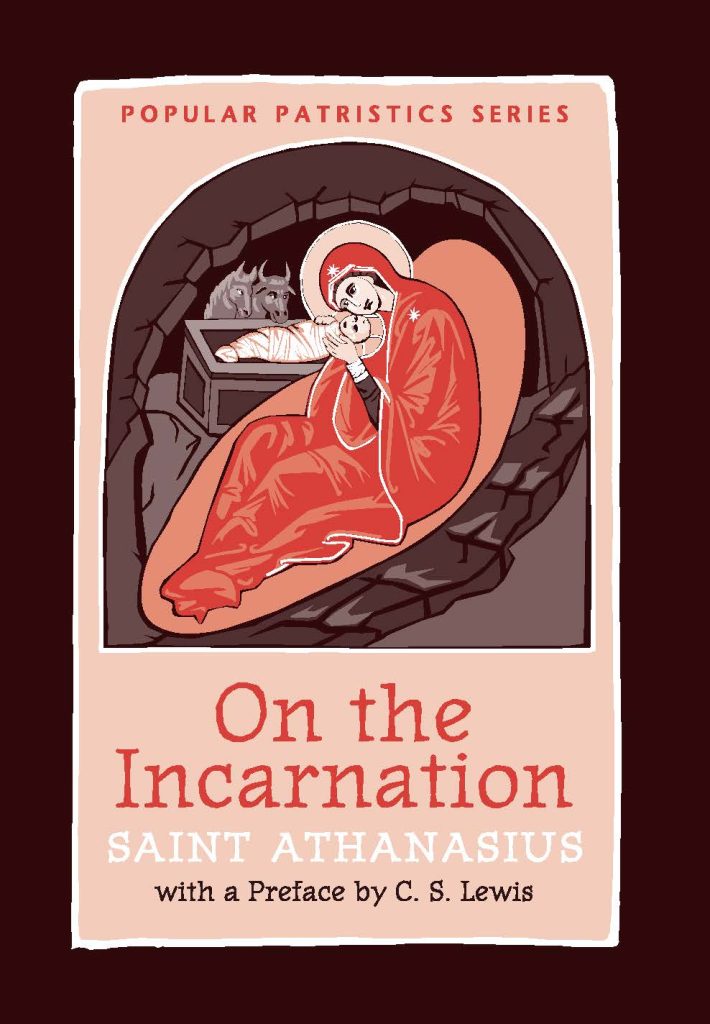Please remember that tonight we are beginning our study of Athanasius’ “On the Incarnation.” This week we are reading through C.S. Lewis’ introduction and, if time permits, chapter 1 (sections 1-5). If you have not yet received a copy of the book, I have attached these readings for you or can you read them online HERE. As we read through “On the Incarnation” we will see many of the concepts put forth by Athanasius to be reflected and explained in Lewis’ works. One of those concepts within chapter one (section 4) is that sin causes us to return through corruption back into non-being. Lewis’ book The Great Divorce, is a story of people in hell who are given the glimpse and opportunity to reside in heaven and the book describes this very process of people becoming non-being due to their sin. The story opens with the narrator of the story finding himself on the bus that travels between these two worlds. He describes the occupants of hell upon their arrival in heaven as thus:
Now that they were in the light, they were transparent – fully transparent when they stood between me and the light, smudgy and imperfectly opaque when they stood in the shadow of some tree. They were in fact ghosts: man-shaped stains on the brightness of that air. One could attend to them or ignore them at will as you do with the dirt on a window pane. I noticed that the grass did not bend under their feet: even the dew drops were not disturbed.”
The process of becoming a ghost or non-being is explained to the narrator by George MacDonald (Lewis’ mentor) using the example of a “silly, garrulous old woman who has got into the habit of grumbling.” As explained by Geo. MacDonald:
The question is whether she is a grumbler, or only a grumble. If there is a real woman – even the least trace of one-still there inside the grumbling, it can be brought to life again. If there’s one wee spark under all those ashes, we’ll blow it till the whole pile is red and clear. But if there’s nothing but ashes we’ll not go on blowing them in our own eyes forever. They must be swept up.
But how can there be a grumble without a grumbler [asked the narrator]?
The whole difficulty of understanding Hell is that the thing to be understood is so nearly Nothing. But ye’ll have experiences . . . it begins with a grumbling mood, and yourself still distinct from it: perhaps criticising it. And yourself, in a dark hour, may will that mood, embrace it. Ye can repent and come out of it again. But there may come a day when you can do that no longer. There will be no you left to criticese the mood, nor even to enjoy it, but just the grumble itself going on forever like a machine.
Dinner is at 6. The menu is lasagna and chianti. This is a fairly accessible book, and so please consider bringing a friend or neighbor. The readings are brief, but if you haven’t read, please come anyway. And if you have not been with us for a while, we do miss not having you with us.
He is the image of the invisible God, the firstborn of all creation. For by him all things were created, in heaven and on earth, visible and invisible, whether thrones or dominions or rulers or authorities—all things were created through him and for him. And he is before all things, and in him all things hold together. And he is the head of the body, the church. He is the beginning, the firstborn from the dead, that in everything he might be preeminent. For in him all the fullness of God was pleased to dwell, and through him to reconcile to himself all things, whether on earth or in heaven, making peace by the blood of his cross.
Colossians 1:15-20

